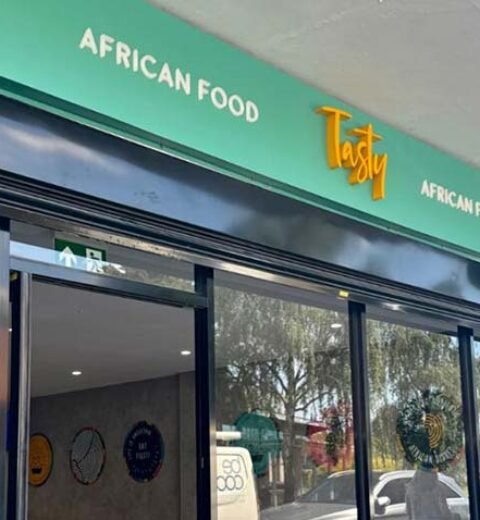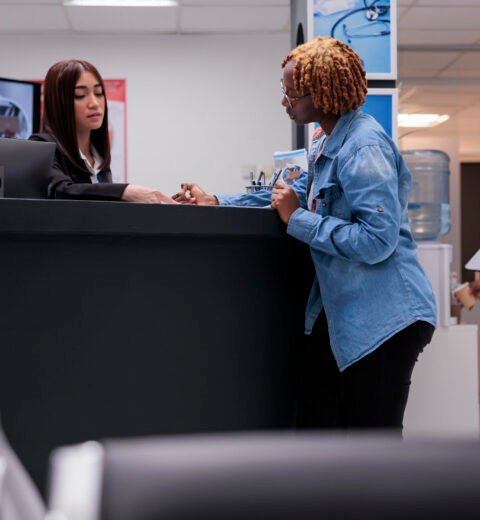Starting or buying a business in the UK is an exciting and life-changing venture, especially if you’re looking to secure a Skilled Worker Visa through the self-sponsorship route. Whether you’re a Nigerian entrepreneur or someone looking to grow in the UK, Naija UK Connect is here to guide you every step of the way. In this article, we will cover everything you need to know—from understanding what owning a running business means to how self-sponsorship can help you secure your visa and establish your dream business.
Understanding the Basics: What is a Running Business?
Before diving into self-sponsorship, it’s important to understand what a running business is. A running business refers to a business that is actively operating, generating consistent revenue, and meeting all legal and regulatory requirements. When you purchase a running business, you’re essentially buying into an established model where operations, branding, and systems are already in place.
For example, let’s say there’s a salon owner who is relocating abroad. They may decide to sell their ready-to-use salon, allowing you to purchase the business and continue running it without the hassle of starting from scratch. This can be a great option for those who want to enter the UK business scene without needing to build everything from the ground up.
Finding a Running Business in the UK
To begin your search for a running business, there are several online platforms where you can explore businesses that are up for sale. A popular option is businessesforsale.com. Here’s how you can search for your ideal business:
- Choose Your Industry: Whether you’re interested in buying a salon, restaurant, or any other business, you can filter by industry.
- Explore Listings: Browse through various listings that include important details like photos, price, rent, and contact information.
- Connect with Sellers: Reach out to the business owners or brokers to get more information and schedule a visit.
What to Do Before Proceeding with Buying a Running Business
Purchasing a running business is an exciting but careful decision. Here’s a checklist of things you need to do before proceeding:
- Visit the Premises: Always ensure that you visit the business location to verify the condition and operations.
- Verify Ownership and Financial Records: Make sure the seller provides you with accurate records, including tax documents, financial statements, and proof of legal obligations being met.
- Avoid Cash Transactions: Never pay in cash or via personal accounts—always use proper business transactions to avoid scams.
- Engage a Solicitor: Once you’ve finalized your decision, ensure you have a solicitor review any contracts, especially the lease agreement.
What You Need to Know About Starting Your Own Café or Food Business in the UK 🍽️🇬🇧
If you’re passionate about food and hospitality, owning a café or restaurant in the UK could be a great choice. However, starting a food business comes with a set of legal requirements to ensure safety and compliance. Here’s a checklist to help you get started:
- Register Your Food Business: It’s essential to register with your local council at least 28 days before opening (this is FREE).
- Food Hygiene Rating and Inspection: A food hygiene inspection is mandatory to make sure your business meets the UK’s food safety standards.
- Premises Licence: If you plan to serve alcohol, you’ll need to obtain a premises licence.
- Music Licence: If you intend to play music in your café or restaurant, you’ll need a music licence.
Can You Run a Business While on a Skilled Worker Visa?
If you’re on a Skilled Worker Visa and want to run a business, there are specific rules that you need to follow to ensure you’re complying with UK immigration laws. Here’s a detailed explanation:
1. Running a Business While Working in Your Skilled Worker Role
You’re allowed to run a business part-time (20 hours per week) if your business is related to an eligible occupation on the Skilled Occupation List. This can be a great way to test your business idea before going full-time.
However, if you want to run your business full-time and make more than 20 hours a week, you’ll need to update your visa status.
2. Switching from Skilled Worker Visa to Running Your Own Business
If you’re currently on a Skilled Worker Visa and want to leave your job to run your own business full-time, you’ll need to update your visa.
- Eligibility for Lower Salary Threshold: If your Certificate of Sponsorship (CoS) was issued before April 4, 2024, you might be eligible for a lower salary threshold when switching.
- Apply Up to 3 Months in Advance: You can apply for the visa update up to 3 months before starting your business.
You’ll need a Sponsor License for your business and can then transition to your Skilled Worker Visa status.
Sponsored Job vs. Self-Sponsorship – Which Option Is Best for You?
When it comes to securing your Skilled Worker Visa, you may wonder whether you should apply for a sponsored job or take the self-sponsorship route. Let’s break it down:
Sponsored Job Route
If you’ve secured a job that meets your skills and qualifications, applying for a sponsored job might be the easiest route. You can work full-time once your visa is approved.
Self-Sponsorship Route
For those who want to run their own business in the UK, the self-sponsorship route is ideal. This allows you to:
- Work part-time (up to 20 hours/week) on your business while keeping your Skilled Worker Visa.
- Transition into full-time business ownership by applying for a Sponsor License and obtaining a Skilled Worker Visa.
If securing a job in your field is proving difficult, self-sponsorship can be a safer, more structured approach to living and working in the UK.
Self-Sponsorship Process: A Step-by-Step Guide
If you’re ready to move forward with self-sponsorship, here’s the process you’ll need to follow to get your business up and running:
- Register Your Company: Start by registering your company with Companies House.
- Obtain Employer’s Liability Insurance: This is a legal requirement in the UK for any business.
- Set Up PAYE and Business Bank Accounts: Register for PAYE and open a business bank account to manage your finances.
- Create a Business Plan: Having a solid business plan is essential when applying for a Sponsor License.
- Apply for a Sponsor License: Your business must have a Sponsor License to issue a Certificate of Sponsorship (CoS).
- Issue CoS and Apply for Skilled Worker Visa: Once you have your Sponsor License, you can issue a CoS and apply for your Skilled Worker Visa.
At Naija UK Connect, we offer end-to-end support, guiding you through everything from company registration to visa approval.
Why Choose Naija UK Connect for Your Self-Sponsorship Journey?
We provide comprehensive guidance for Nigerian entrepreneurs looking to own a business in the UK and obtain a Skilled Worker Visa. Our services include:
- Company registration at Companies House.
- Applying for Sponsor Licenses.
- Issuing CoS and securing Skilled Worker Visas.
- Collaborating with immigration professionals to ensure your process is smooth and successful.
Our expertise can help you avoid common pitfalls, ensuring your transition to owning a business in the UK is seamless.
Take the Next Step with Naija UK Connect
The journey to self-sponsorship and business ownership can be a long one, but with Naija UK Connect, you won’t be doing it alone. We’ll guide you through each stage of the process, ensuring your business journey in the UK is a success!
Stay tuned and follow us for more updates on self-sponsorship, business ownership, and visa opportunities in the UK! 🌍🚀
#NaijaUKConnect #SelfSponsorship #UKBusinessOwnership #SkilledWorkerVisa #EntrepreneurLife #RunningBusiness #SkilledOccupationList #UKVisa
Join Our WhatsApp Channel
Stay updated on the latest UK news, including education, health, job openings, and more for those living in the UK!
Join here: Naija UK Channel
Also, follow us on our social media channels for the latest updates and discussions:
- Twitter: @NaijaUKConnect
- Facebook: Naija UK Connect
- Instagram: @naijaukconnect




